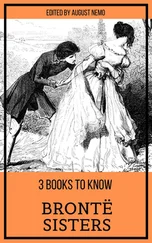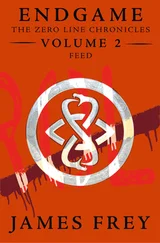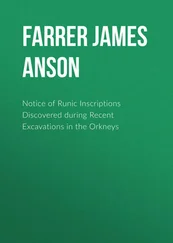James Farrer - Books Condemned to be Burnt
Здесь есть возможность читать онлайн «James Farrer - Books Condemned to be Burnt» — ознакомительный отрывок электронной книги совершенно бесплатно, а после прочтения отрывка купить полную версию. В некоторых случаях можно слушать аудио, скачать через торрент в формате fb2 и присутствует краткое содержание. Жанр: foreign_antique, foreign_prose, на английском языке. Описание произведения, (предисловие) а так же отзывы посетителей доступны на портале библиотеки ЛибКат.
- Название:Books Condemned to be Burnt
- Автор:
- Жанр:
- Год:неизвестен
- ISBN:нет данных
- Рейтинг книги:4 / 5. Голосов: 1
-
Избранное:Добавить в избранное
- Отзывы:
-
Ваша оценка:
- 80
- 1
- 2
- 3
- 4
- 5
Books Condemned to be Burnt: краткое содержание, описание и аннотация
Предлагаем к чтению аннотацию, описание, краткое содержание или предисловие (зависит от того, что написал сам автор книги «Books Condemned to be Burnt»). Если вы не нашли необходимую информацию о книге — напишите в комментариях, мы постараемся отыскать её.
Books Condemned to be Burnt — читать онлайн ознакомительный отрывок
Ниже представлен текст книги, разбитый по страницам. Система сохранения места последней прочитанной страницы, позволяет с удобством читать онлайн бесплатно книгу «Books Condemned to be Burnt», без необходимости каждый раз заново искать на чём Вы остановились. Поставьте закладку, и сможете в любой момент перейти на страницу, на которой закончили чтение.
Интервал:
Закладка:
The last book I find to notice is the Abbé Raynal's Histoire philosophique et politique des Etablissemens et du Commerce des Européens dans les Deux Indes , published in 1771 at Geneva, and, after a first attempt at suppression in 1779, finally burnt by the order of the Parlement of Paris of May 25th, 1781, as impious, blasphemous, seditious, and the rest. Like many another eminent writer, Raynal had started as a Jesuit.
From the above illustrations of the practice abroad, we may turn to a more detailed account of its history in England. Although in France it was much more common than in England during the eighteenth century, it appears to have come to an end in both countries about the same time. I am not aware of any proofs that it survived the French Revolution, and it is probable that that event, directly or indirectly, put an end to it. In England it seems gradually to have dwindled, and to have become extinct before the end of the century. If the same was the case in other countries, it would afford another instance of the fundamental community of development which seems to govern at least our part of the civilised world, regardless of national differences or boundaries. The different countries of the world seem to throw off evil habits, or to acquire new habits, with a degree of simultaneity which is all the more remarkable for being the result of no sort of agreement. At one time, for instance, they throw off Jesuitism, at another the practice of torture, at another the judicial ordeal, at another burnings for heresy, at another trials for witchcraft, at another book-burning; and now the turn seems approaching of war, or the trade of professional murder. The custom here to be dealt with, therefore, holds its place in the history of humanity, and is as deserving of study as any other custom whose rise and decline constitute a phase in the world's development.
CHAPTER I.
Sixteenth Century Book-Fires
FIRE, which is the destruction of so many things, and destined, according to old Indian belief, one day to destroy the world, is so peculiarly the enemy of books, that the worm itself is not more fatal to them. Whole libraries have fallen a prey to the flames, and oftener, alas! by design than accident; the warrior always, whether Alexander at Persepolis, Antiochus at Jerusalem, Cæsar and Omar at Alexandria, or General Ulrich at Strasburg (in 1870), esteeming it among the first duties of his barbarous calling to consign ideas and arts to destruction.
But these are the fires of indiscriminate rage, due to the natural antagonism between civilisation and military barbarism; it is fire, discriminately applied, that attaches a special interest and value to books condemned to it. Whether the sentence has come from Pope or Archbishop, Parliament or King, the book so sentenced has a claim on our curiosity, and as often on our respect as our disdain. Fire, indeed, has been spoken of as the blue ribbon of literature, and many a modern author may fairly regret that such a distinction is no longer attainable in these days of enlightened advertisement.
To collect books that have been dishonoured – or honoured – in this way, books that at the risk of heavy punishment have been saved from the public fire or the common hangman, is no mean amusement for a bibliophile. Some collect books for their bindings, some for their rarity, a minority for their contents; but he who collects a fire-library makes all these considerations secondary to the associations of his books with the lives of their authors and their place in the history of ideas. Perhaps he is thereby the more rational collector, if reason at all need be considered in the matter; for if my whim pleases myself, let him go hang who disdains or disapproves of it.
All the books of such a library are not, of course, suitable for general reading, there being not a few disgraceful ones among them that fully deserved the stigma intended for them. But most are innocent enough, and many of them as dull as the authors of their condemnation; whilst others, again, are so sparkling and well written that I wish it were possible to rescue them from the oblivion that enshrouds them even more thickly than the dust of centuries. The English books of this sort naturally stand apart from their foreign rivals, and may be roughly classified according as they deal with the affairs of State or Church. The original flavour has gone from many of them, like the scent from dried flowers, with the dispute or ephemeral motive that gave rise to them; but a new flavour from that very fact has taken the place of the old, of the same sort that attaches to the relics of extinct religions or of bygone forms of life.
The history of our country since the days of printing is exactly reflected in its burnt literature, and so little has the public fire been any respecter of class or dignity, that no branch of intellectual activity has failed to contribute some author whose work, or works, has been consigned to the flames. Our greatest poets, philosophers, bishops, lawyers, novelists, heads of colleges, are all represented in my collection, forming indeed a motley but no insipid society, wherein the gravest questions of government and the deepest problems of speculation are handled with freedom, and men who were most divided in their lives meet at last in a common bond of harmony. Cowell, the friend of prerogative, finds himself here side by side with Milton, the republican; and Sacheverell, the high churchman, in close company with Tindal and Defoe.
For nearly 300 years the rude censorship of fire was applied to literature in England, beginning naturally in that fierce religious war we call the Reformation, which practically constitutes the history of England for some two centuries. The first grand occasion of book-burning was in response to the Pope's sentence against Martin Luther, when Wolsey went in state to St. Paul's, and many of Luther's publications were burned in the churchyard during a sermon against them by Fisher, Bishop of Rochester (1521).
But the first printed work by an Englishman that was so treated was actually the Gospel. The story is too familiar to repeat, of the two occasions on which Tyndale's New Testament in English was burnt before Old St. Paul's; but in pausing to reflect that the book which met with this fiery fate, and whose author ultimately met with the same, is now sold in England by the million (for our received version is substantially Tyndale's), one can only stand aghast at the irony of the fearful contrast, which so widely separated the labourer from his triumph. But perhaps we can scarcely wonder that our ancestors, after centuries of mental blindness, should have tried to burn the light they were unable to bear, causing it thereby only to shine the brighter.
It certainly spread with remarkable celerity; for in 1546 it became necessary to command all persons possessing them to deliver to the bishop, or sheriff, to be openly burnt, all works in English purporting to be written by Frith, Tyndale, Wicliff, Joye, Basil, Bale, Barnes, Coverdale, Turner, or Tracy. The extreme rarity and costliness of the works of these men are the measure of the completeness with which this order was carried out; but not of its success, for the ideas survived the books which contained them. A list of the books is given in Foxe (v. 566), and comprises twelve by Coverdale, twenty-eight by Bale, thirteen by Basil ( alias Becon), ten by Frith, nine by Tyndale, seven by Joye, six by Turner, three by Barnes. Some of these may still be read, but more are non-existent. A complete account of them and their authors would almost amount to a history of the Reformation itself; but as they were burnt indiscriminately, as heretical books, they have not the same interest that attaches to books specifically condemned as heretical or seditious. Such of them, however, as a book-lover can light upon – and pay for – are, of course, treasures of the highest order.
Читать дальшеИнтервал:
Закладка:
Похожие книги на «Books Condemned to be Burnt»
Представляем Вашему вниманию похожие книги на «Books Condemned to be Burnt» списком для выбора. Мы отобрали схожую по названию и смыслу литературу в надежде предоставить читателям больше вариантов отыскать новые, интересные, ещё непрочитанные произведения.
Обсуждение, отзывы о книге «Books Condemned to be Burnt» и просто собственные мнения читателей. Оставьте ваши комментарии, напишите, что Вы думаете о произведении, его смысле или главных героях. Укажите что конкретно понравилось, а что нет, и почему Вы так считаете.












